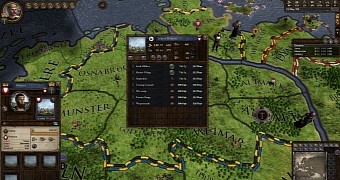I have spent the last six days away in Vienna, Austria, a city loaded to the gills with history that manages to effectively showcase the past while also teaching visitors who are willing to learn about its Imperial glory and about its decline.
A big number of video games deal with the periods ranging from Ancient Rome to World War II and other periods that have interesting events to play through or cool situations for gamers to experience but despite the ever-improving graphics and the innovations in gameplay the industry and its clients still fail to make history as interesting as it should be.
Call of Duty, for example, started life as a first-person shooter centered on the intense infantry-driven combat of the second World War and evolved over time to cover conflicts that have not yet taken place but might do so in the future.
The game is a best seller, but it does not even attempt to make gamers interested in finding out more information about the situations on which it is based or about the reasons that created situations like the Normandy landings or the fall of the German Reich, moving through medieval Italy or the French Revolution.
At the other end, The Creative Assembly with Total War and Paradox with its own grand strategy experience are more focused on history and its driving forces, but there's no way to actually simulate the impact that one person can have or the complexity of situations that then influence political, military, social and other trends.
Gameplay versus information
Visiting museums and palaces, reading descriptions and listening to audio guides can sometimes be exhausting and could even appear like a poor use of someone's time.
During the day I went through Hofburg Palace, I could have probably finished a quick campaign in Total War: Rome II, for example.
But actually moving through the rooms and learning about the Hapsburgs in the place they actually inhabited managed to make the entire experience more appealing than simply reading about it online or in a book.
I would like to see developers who use history as the basis for the titles they offer to expand the context and deliver gamers more ways to learn in ways that are tailored for their needs, with a mix of text, video where possible and recreations of characters and situations.
Games will never replace real world learning, but they can become better at introducing players to subjects and ideas.

 14 DAY TRIAL //
14 DAY TRIAL //